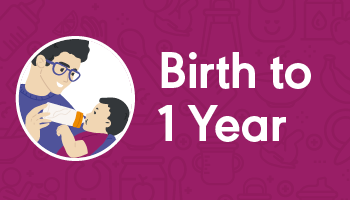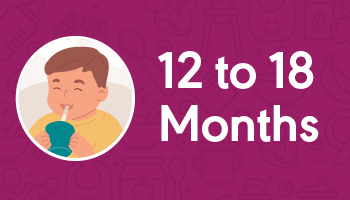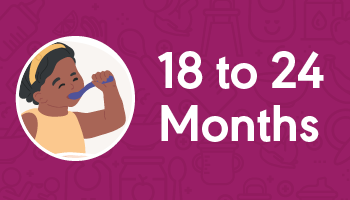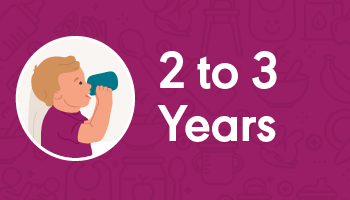Feeding and Swallowing Milestones: Age Ranges
These milestones are designed to help you know what to expect as your child grows and develops—and to know when to seek the guidance of a speech-language pathologist. When reviewing the milestones, also consider the age ranges below and above your child's age. These milestones are not meant to be a screening or diagnostic tool.
Learn more about developmental milestones and see the supporting research.
Videos
General Feeding and Swallowing Tips
Here are some tips to help families support their child's feeding and swallowing development:
- Have your child try a new food many times—this gives them the chance to decide if they like it.
- Serve a variety of foods to your child. Don't get discouraged if they don't like it the first few times.
- Cook with your child. Share new smells and tastes. Cooking together can make tasting new foods exciting when your child knows that they helped to prepare it!
- Children learn through play, so expose them to new foods by making meals exciting or playful. For example, have a picnic lunch outside, or finger paint with applesauce.
- Build on what your child already likes to eat by taking food one step further. For example, if they like chicken nuggets, try a chicken patty.
- Ask your child to try new foods, but don't bribe or push your child too much. Pushing can cause your child to have negative associations with the act of eating—or with food in general.
- Help your child learn their hunger and fullness cues. This creates healthy eating habits and a long-term positive relationship with food.
- You know your child best, so don't wait to get help if your child is having trouble breastfeeding, bottle-feeding, or eating solid foods. Getting help early can prevent problems with eating and can foster a healthy relationship with food for you and your child.













